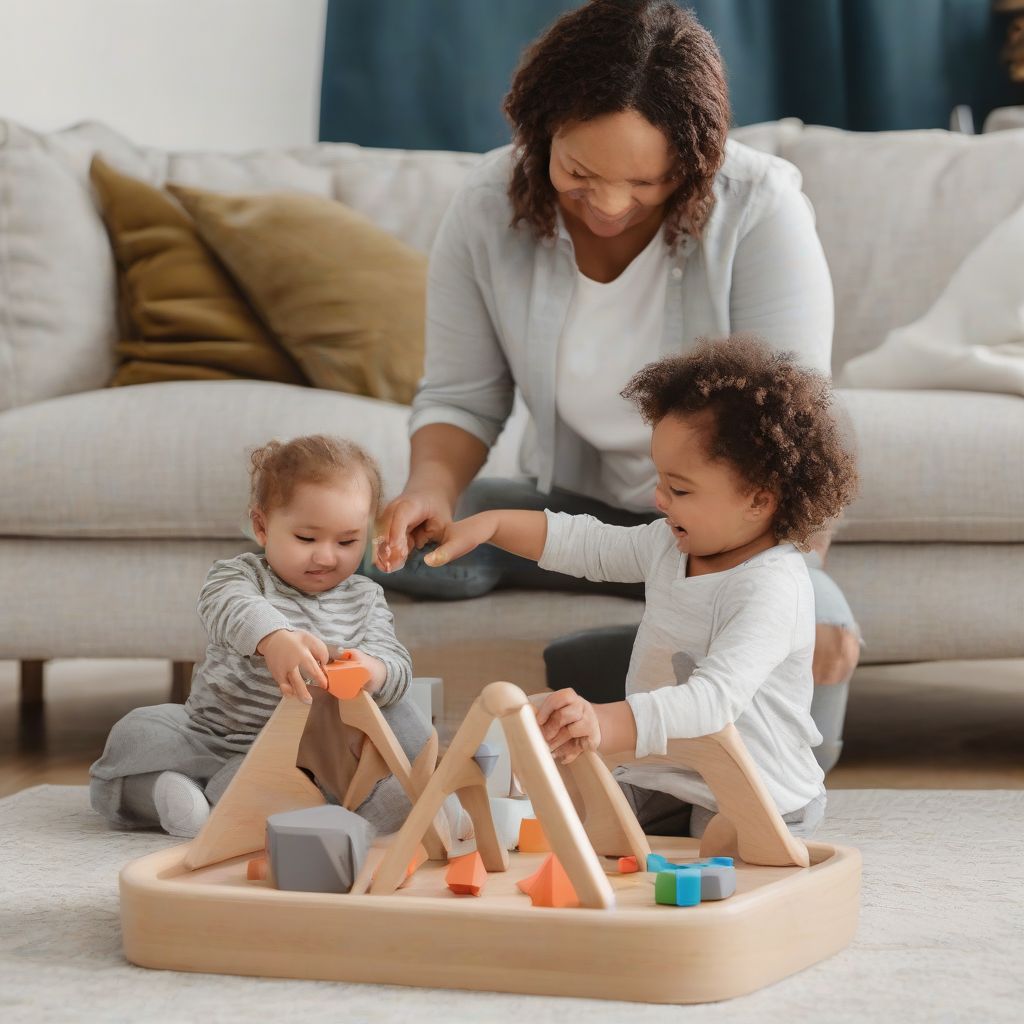“What’s the best toy for a 2-year-old?” As a nutritionist and meal-planning coach, I get asked this question a lot, usually right after we’ve nailed down a healthy eating plan for the little ones. And you know what? It makes perfect sense! Just like healthy food fuels their bodies, the right toys fuel their minds and development.
Choosing age-appropriate toys isn’t just about preventing boredom; it’s about fostering a love for learning, boosting those crucial developmental skills, and most importantly, sparking pure, unadulterated joy in those little faces.
So, buckle up, parents, grandparents, and awesome aunts and uncles! Let’s dive into the wonderful world of toys and how to pick the perfect ones for those precious growing years.
Understanding Developmental Stages
Before we jump into the toy aisle, let’s take a quick look at the different stages of development. Think of this as your trusty roadmap to choosing toys that are not just fun, but also support your child’s growth.
Babies (0-12 Months)
- Sensory Exploration: This stage is all about those tiny hands grabbing, those curious mouths exploring textures, and those wide eyes soaking in bright colors and fascinating movements.
- Cause and Effect: This is when they start realizing their actions can make things happen – think a rattle making a sound or a mobile moving when touched.
Toy Ideas: Rattles, teething toys, soft books with high-contrast images, unbreakable mirrors, playmats with arches, activity centers.
Toddlers (1-3 Years)
- Gross Motor Skills: Walking, running, climbing – these little dynamos are all about movement!
- Fine Motor Skills: Stacking blocks, scribbling with crayons, and those first attempts at using utensils all help develop those tiny hand muscles.
- Pretend Play: Watch as your little one transforms into a chef, a doctor, or a superhero, all through the power of imagination!
Toy Ideas: Push-and-pull toys, ride-on toys, blocks, shape sorters, simple puzzles, art supplies, dolls, play kitchens, toy tools.
Preschoolers (3-5 Years)
- Social and Emotional Development: Preschoolers are starting to interact more with other children, learning about sharing, taking turns, and understanding emotions.
- Language Development: Get ready for those adorable chatterboxes! This is a period of massive vocabulary expansion and sentence formation.
- Cognitive Skills: Their little brains are like sponges, soaking up information and developing problem-solving and critical thinking abilities.
Toy Ideas: Dress-up clothes, puppets, construction toys, play dough, art supplies, board games, puzzles, books.
 Choosing Age-Appropriate Toys
Choosing Age-Appropriate Toys
Key Factors to Consider
Now that we have a general idea of the developmental stages, let’s break down the nitty-gritty of choosing those perfect toys.
1. Safety First!
This one’s a no-brainer. Always check for age recommendations on the toy packaging. Toys for older kids might have small parts that pose a choking hazard for younger children.
- Look for the ASTM F963 label: This means the toy has met the safety standards set by the American Society for Testing and Materials.
- Check for durability: Make sure the toy can withstand enthusiastic play and doesn’t have any sharp edges or points.
2. Engage Their Senses
Think about toys that stimulate your child’s senses – sight, sound, touch, taste (always ensure anything mouthable is safe!), and smell. Multi-sensory toys are fantastic for promoting brain development and keeping those little ones engaged.
3. Open-Ended Play is King (and Queen!)
Open-ended toys are those magical things that don’t have a set way to play with them. Blocks, building toys, art supplies, and pretend play items all fall into this category. Why are they so great? Because they encourage creativity, imagination, and problem-solving skills.
4. Keep It Simple
You don’t need a toy chest overflowing with bells and whistles. Sometimes the simplest toys are the best! A set of wooden blocks can entertain a child for hours, fostering their creativity and spatial reasoning skills.
5. Consider Your Child’s Interests
Does your little one gravitate towards music? Art? Building things? Tap into their natural interests when choosing toys. This will keep them engaged and excited about learning.
The Power of Play: Why It Matters
Play isn’t just about having fun; it’s crucial for a child’s development. Here’s how:
- Cognitive Development: Toys that encourage problem-solving, critical thinking, and cause-and-effect relationships help wire those little brains for success.
- Physical Development: From those first wobbly steps to mastering a tricycle, toys play a huge role in developing gross and fine motor skills.
- Social and Emotional Development: Sharing toys, taking turns, and engaging in pretend play help children understand emotions, build empathy, and develop social skills that will serve them well throughout their lives.
A Final Word
Choosing age-appropriate toys doesn’t have to be overwhelming. By understanding your child’s developmental stage, considering their interests, and prioritizing safety and open-ended play, you can create an enriching and joyful play environment that fosters a lifelong love of learning.
[amazon bestseller=”toys for toddlers”]
Remember, the most valuable gift you can give a child is the gift of play. So, let them explore, imagine, create, and most importantly, have fun!
